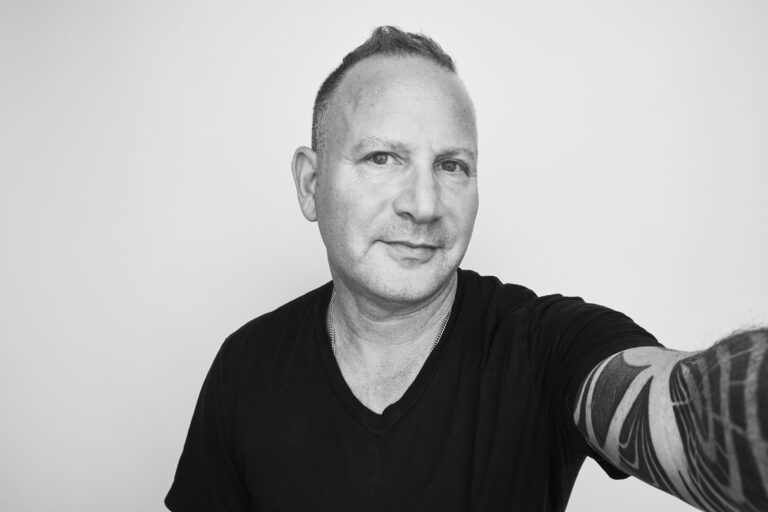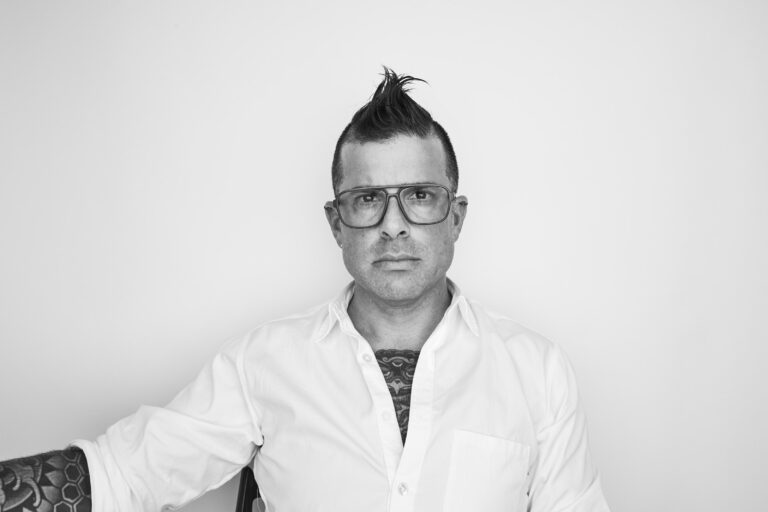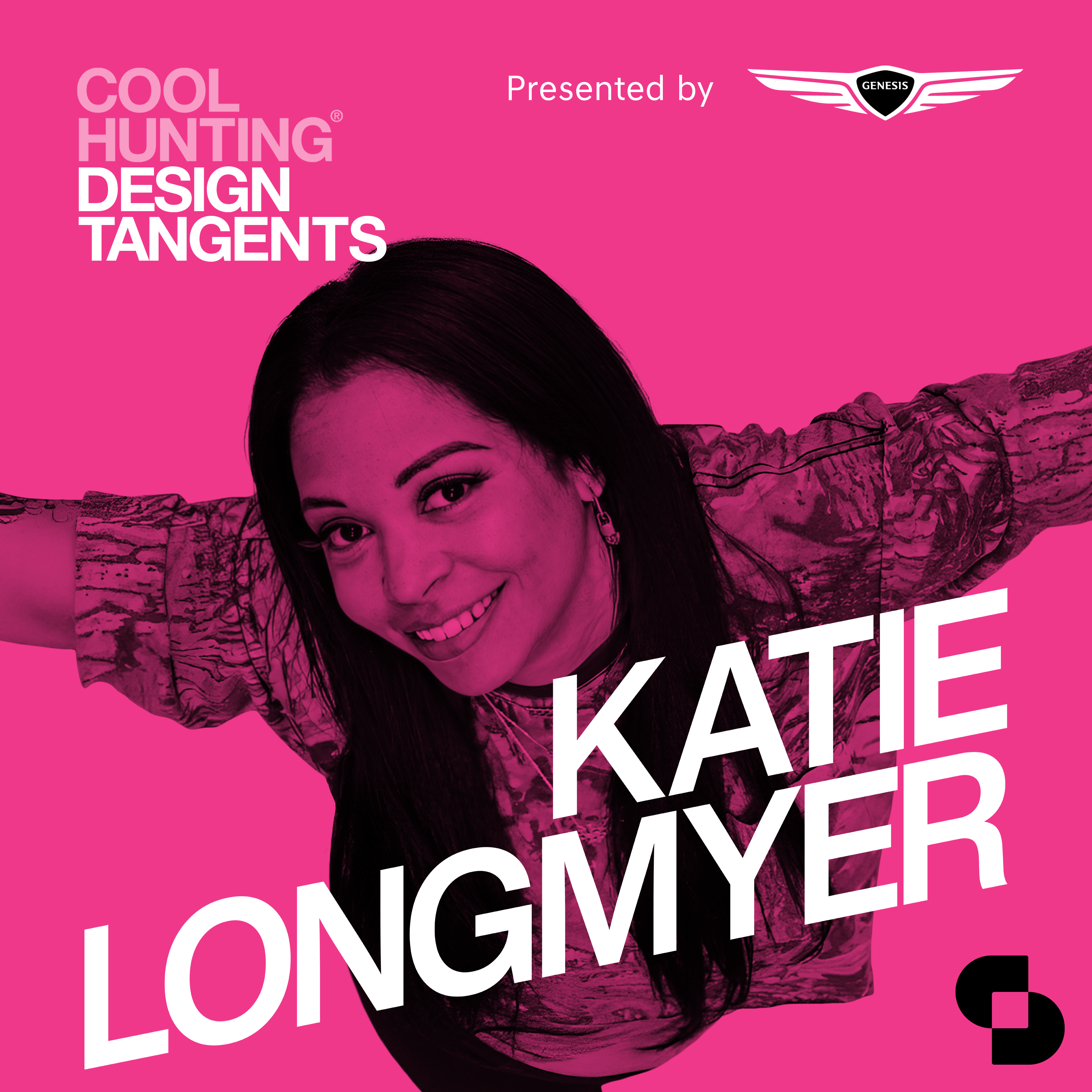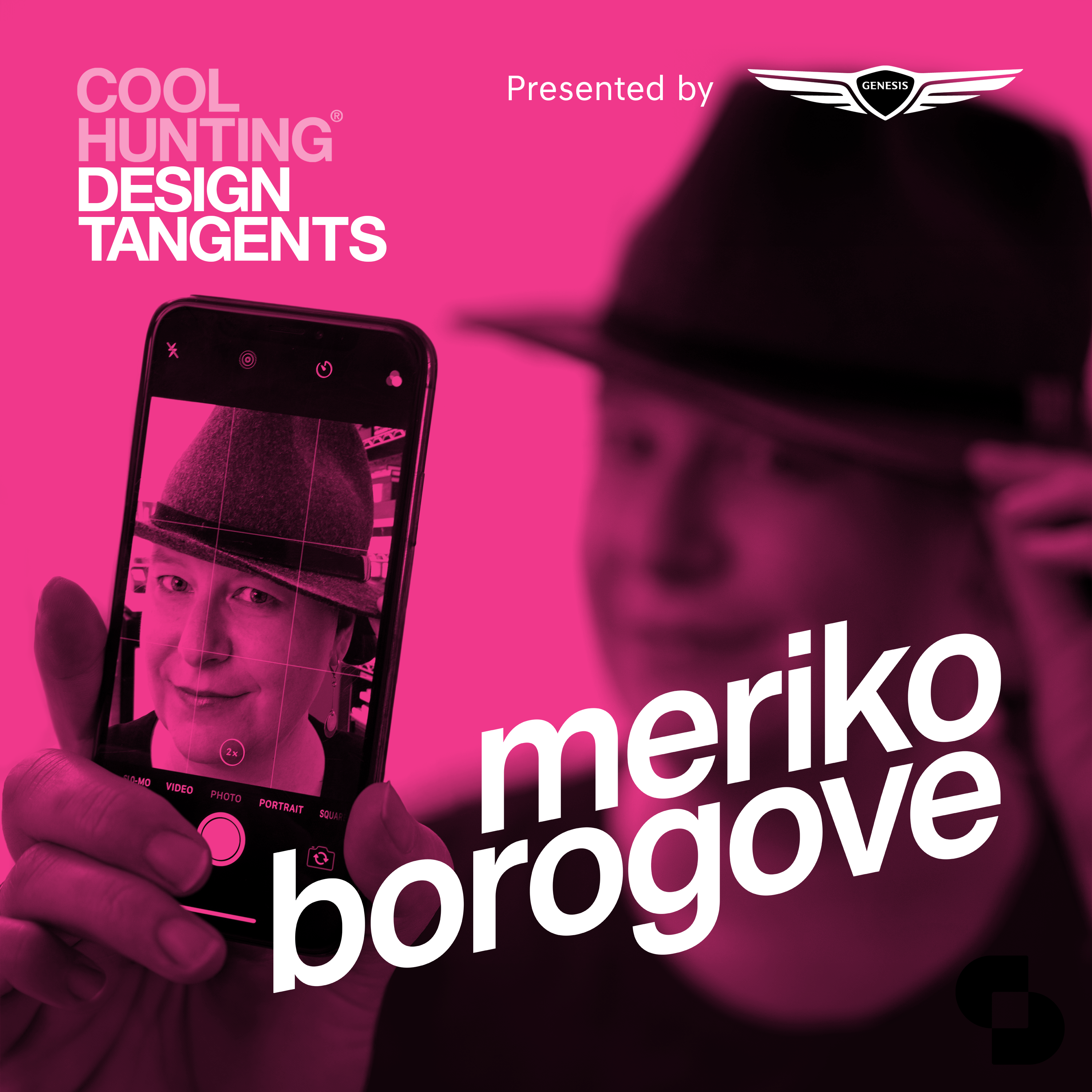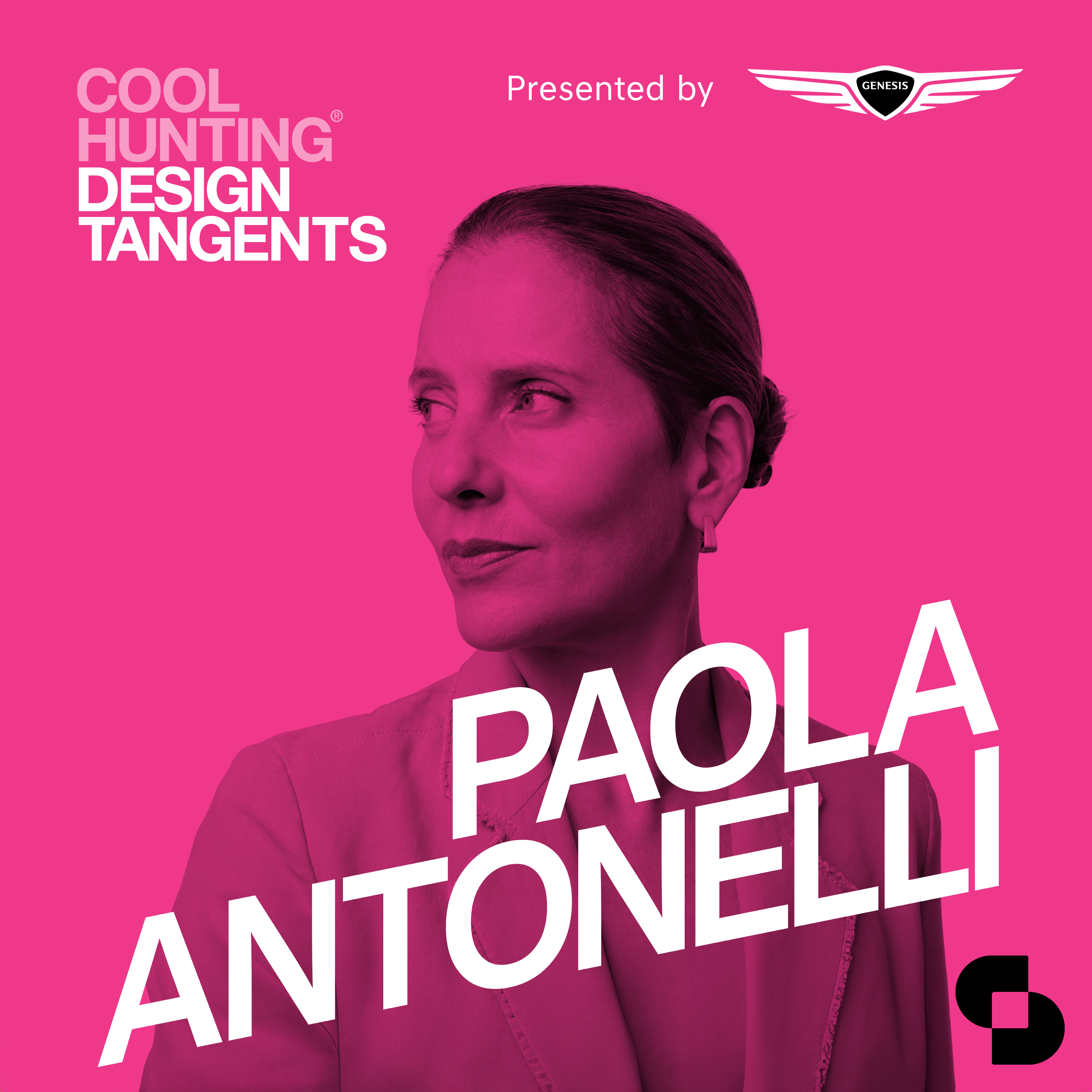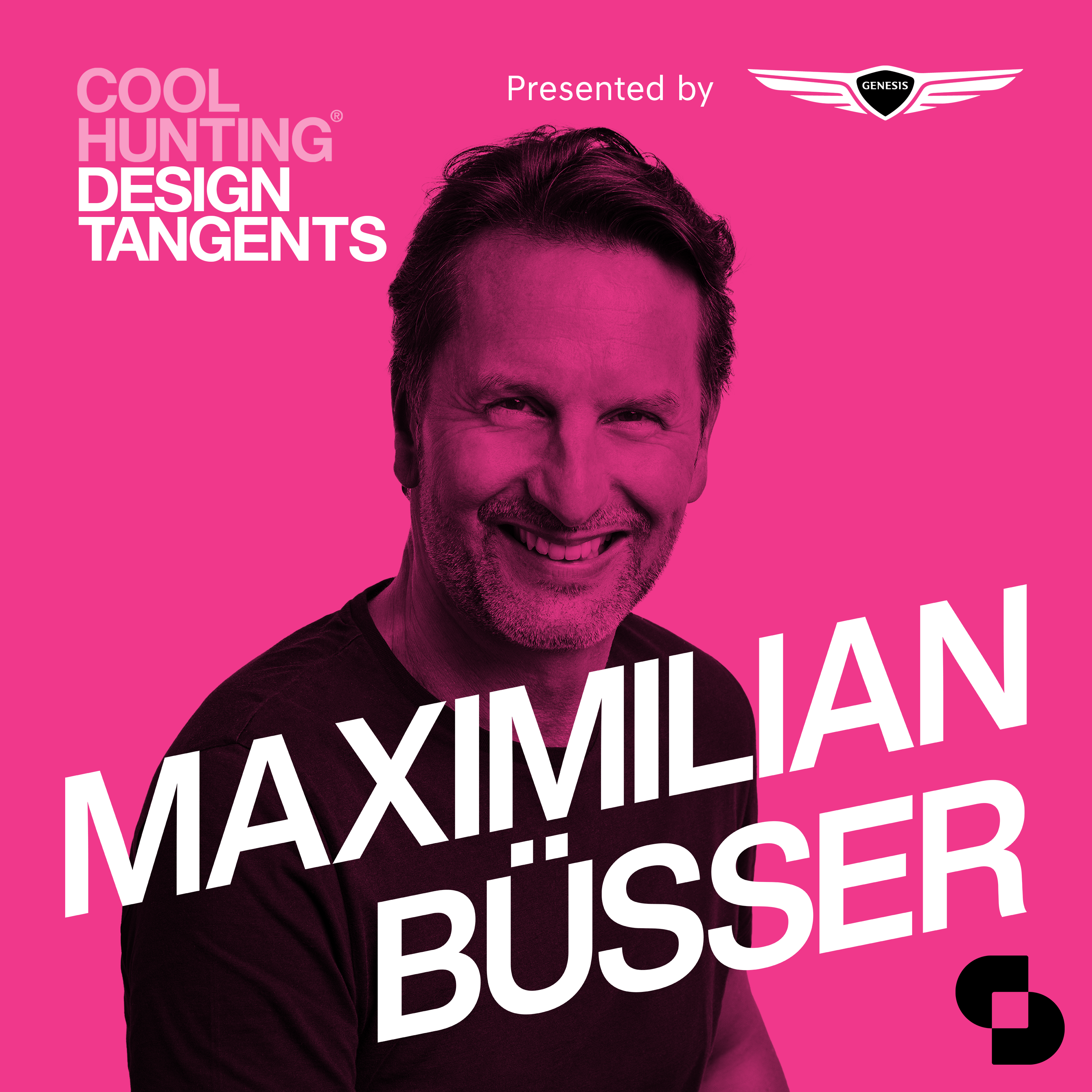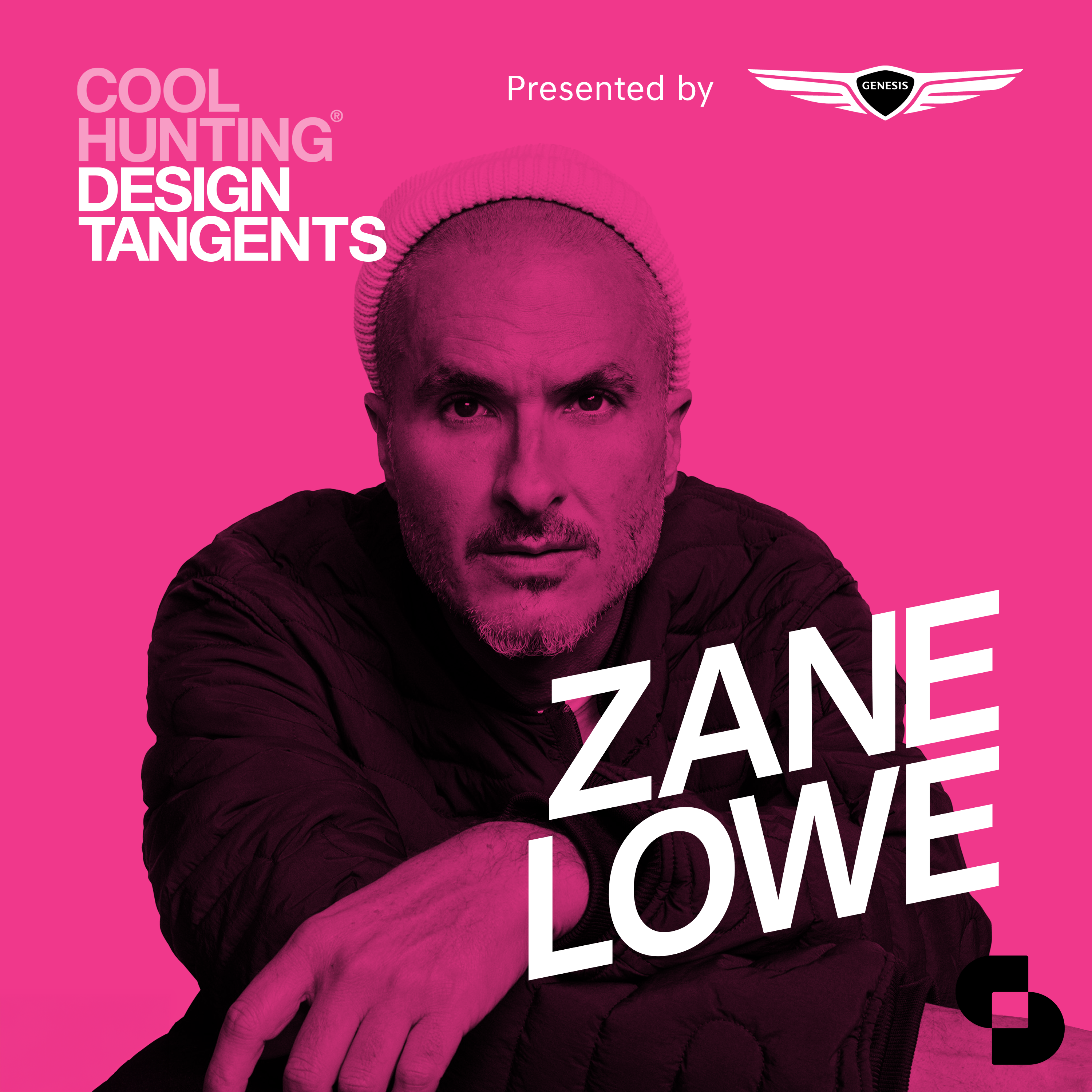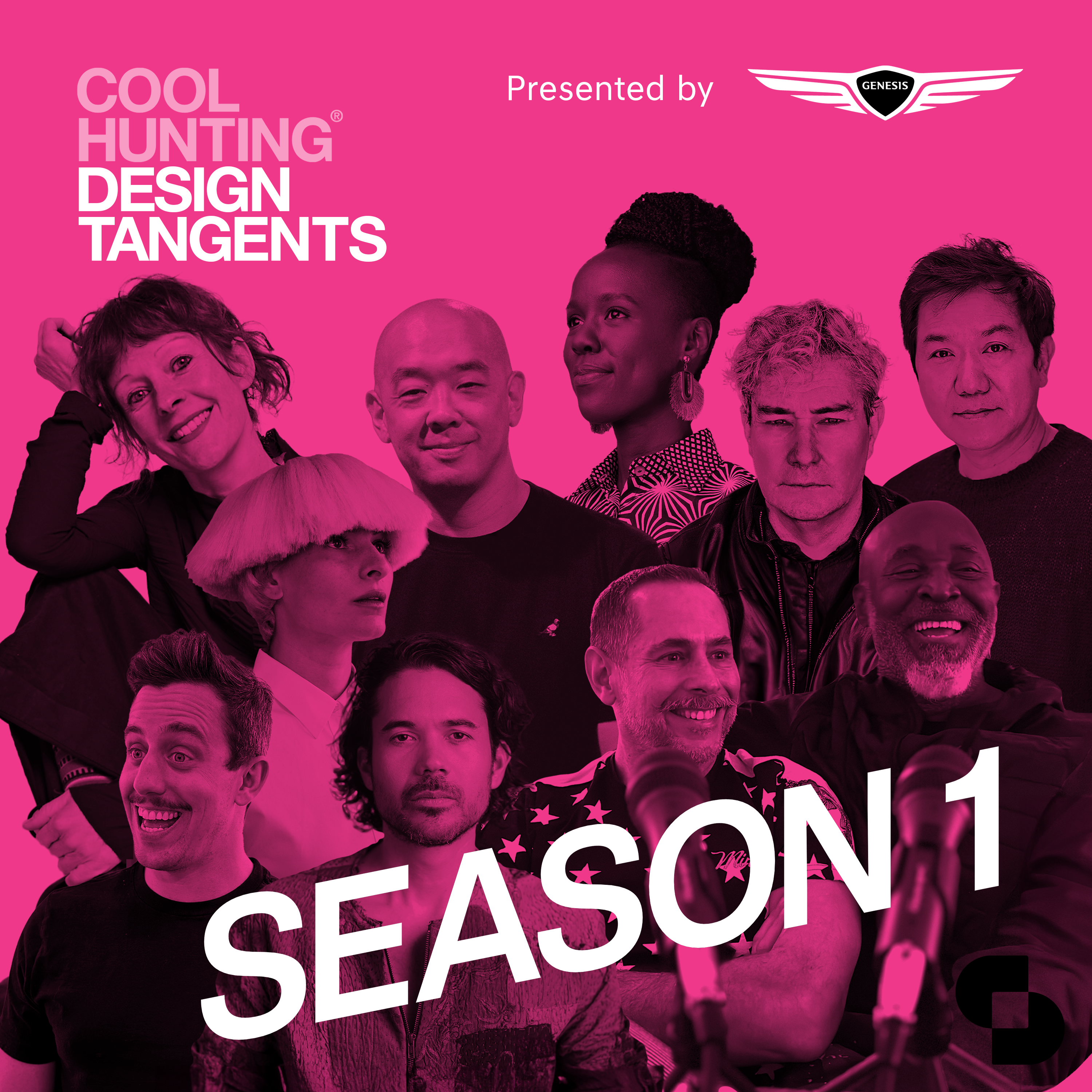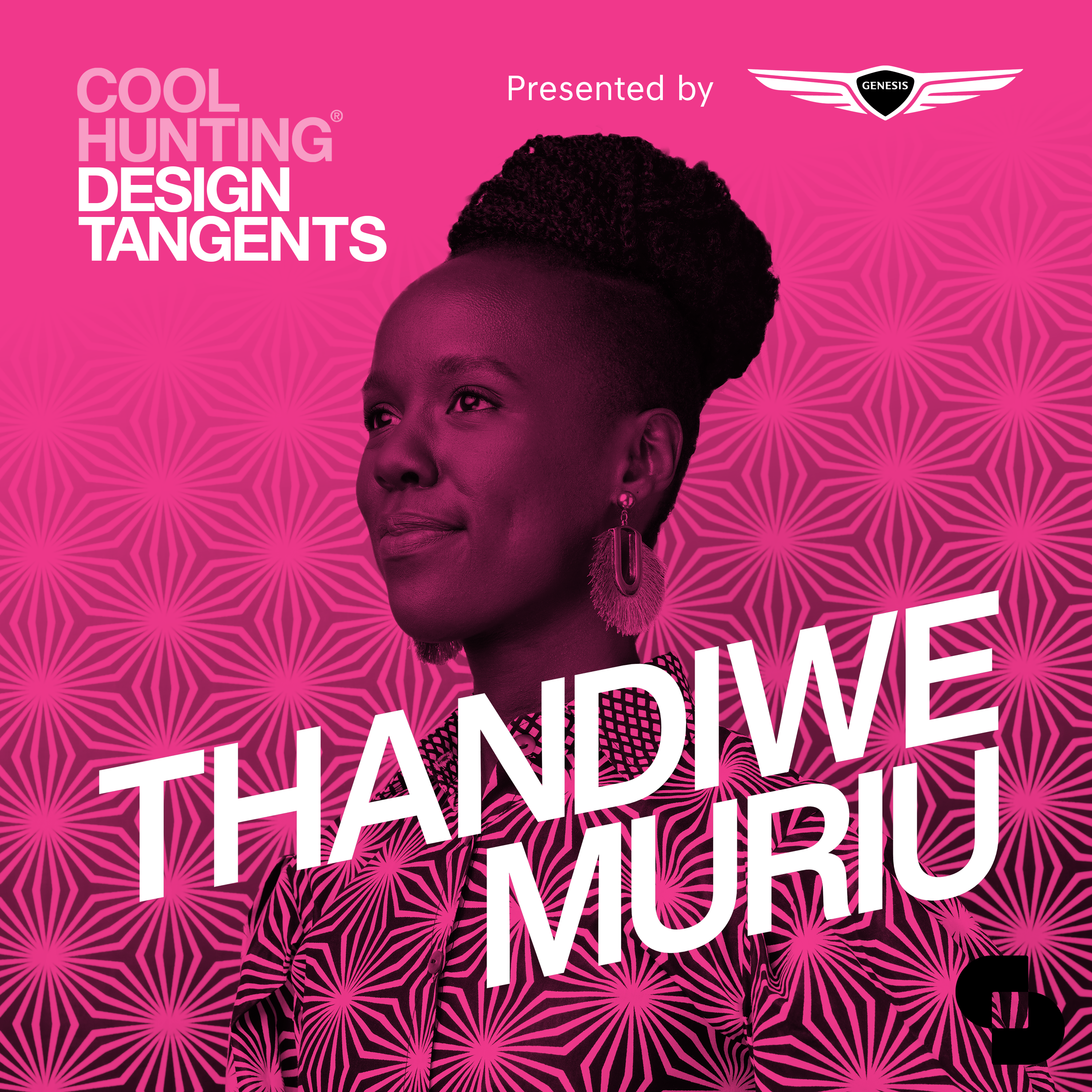At Unnecessary Inventions Matty designs, builds, documents and shares a new product with his millions of followers each week. Pulled from an endless list of ideas he has for gadgets we don’t need but still might be entertained to have, his fans, talk shows and brand partners can’t get enough of his wit. Josh and Evan visited Matty in his new studio in Burlington, VT to see this self-described “evil genius” madness first hand. With his success he could have a staff working with him, yet he prefers to handle everything himself. He shares how he got here, why he has a need to create, how his unusual process makes sense, and that he may have some ideas in a folder that are NSFW that could someday be revealed.
@unnecessaryinventions on all social channels
unnecessaryinventions.com (which includes links to all the social channels)
Discover more shows from SURROUND at surroundpodcasts.com.
This episode of Design Tangents was produced and edited by SANDOW Design Group.
Special thanks to the podcast production team: Rob Schulte, Hannah Viti, Wize Grazette, and Samantha Sager.
Transcripts, show notes, and links for each episode of Design Tangents can be found at surroundpodcasts.com/design-tangents
This transcript was generated in part by an automated service.
Matty Benedetto: [00:00:00] My name is Matty Benedetto and I am the evil genius behind Unnecessary Inventions. Uh, I basically build and design fake consumer products each week to an audience of about 13 million across all of my social media channels.
Evan Orensten: Welcome to Design Tangents. A podcast that goes behind the scenes with creative changemakers to learn about their work, inspiration, challenges, and philosophies. I’m Evan Orensten.
Josh Rubin: And I’m Josh Rubin. We’re the founders of Cool Hunting.
Evan Orensten: Today we’re really excited to be up in Burlington, Vermont. It’s a beautiful sunny Tuesday and we are here with Matty in his new studio, which is ginormous.
Um, has incredible light and really great energy.
Josh Rubin: Matty is a serial creator who’s been making and selling stuff since he was a kid, and now is a Webby Award winner for the content he creates about the stuff he [00:01:00] invents and makes, and most of it he doesn’t even sell these days.
Evan Orensten: Matty’s conceived and designed and built hundreds of inventions.
One of the things he likes to say is that just cause it’s not necessary doesn’t mean it’s not. Useful. Right? Did they get that right?
Josh Rubin: Or just cause it’s unnecessary, doesn’t mean it’s useless.
You’ve
created a punch bowl for Captain Morgan for the Super Bowl. You’re on a first name basis with Hoda and Jenna on the Today Show. Jimmy Kimmel has you on speed dial. So you’ve done a lot in the last four plus years and. Feels like the natural evolution of the path you’ve been on since you were a kid.
So in the, in the early days, you were, you were making beanies through your ski friends
Matty Benedetto: crocheting. My mom taught me when years old ski friends, crochet hats, wanted wear around the ski [00:02:00] mountain
Josh Rubin: and then started making even more and telling them,
Matty Benedetto: so was learned how to crochet them. Uh, so that Adirondack new crochet.
By the next year, I made a website. I.
Submit what they wanted their hat to look like, and I would crochet it. And then by the following year when I was 15, I was like crocheting my hands off after school and decided to outsource all the production overseas to China. Uh, going from like one off individual hats to then designing like a set collection for that winter.
And then over the years that sort of, uh, expanded to gloves and mittens and apparel. In the summer, I would sell sunglasses to try and make it like a full year-round business. Um, but yeah, it was pretty neat.
Evan Orensten: And you took this with you college?
Matty Benedetto: So I had the business going and when I came up, moved from the New [00:03:00] York City area up to Vermont to go to college.
I messaged them, um, told ’em about my business and my first day of college moving into my freshman dorm. I was also moving into my office. I had on campus all four years, so I think I paid like six a month. I paid like electricity and heat in Vermont. Um, and yeah, they keep all four years.
Evan Orensten: How did that co-mingle with your academic life?
Matty Benedetto: I probably could have tried a lot harder in school than I did. It was, it was, it was kinda difficult cause, so I went to school for business and marketing and a lot of the stuff that we were learning in these intro classes, like I already had an ad campaign running in Free Skier magazine and digital ads running on new schoolers com and so it was like I was kinda already doing this stuff that I.
Maybe didn’t need to try as hard because I was actually living it in the moment while we were sort of like playing catch up, learning it in class. Um, so that probably helped.
Evan Orensten: Don’t you feel you were born with that? I mean, you, you were born with this kind of [00:04:00] showmanship, with this sense of understanding a need that people have or maybe discovering one.
Like are just born with, like, you have that
in you. Right?
Matty Benedetto: And I think at that point, I mean, you know, when you’re 18 you’re just sort going with the flow. It’s like, go high school, go to college. And I mean, I, I loved coming up here from New York and being able to ski three, four times a week. And it probably helped being in school and not having a ton of responsibility that I could just kinda do whatever and build out the things I wanted.
Josh Rubin: Our paths crossed in.
The, the apparel and accessory business to, um, let’s see, you, you renamed the brand, you started calling it Eastern Collective and then you started wrapping iPhone cables and cloth. Yep. And the first time we saw those, we were like, oh my God, that is super clever [00:05:00] and it looks great and it solves all problems.
What was imp apparel accessories to. Phone accessories.
Matty Benedetto: Yeah, I think, I mean, what I do now is Unnecessary Inventions, I think is the culmination of how my brain actually works in that I’m constantly like, I’m just one idea. The all times. So back then I didn’t necessarily have like the outlet to do it, but I think it was just that, that like my brain just had this idea and I, I’m not one to just like.
Oh, I don’t know how to do it. I’m not gonna, you know, I’m just one. If I have an idea, I’m gonna figure it out and figure out how it needs to get done. So even though it was something like a total 90 degree term from what I had been doing previously, um, I just decided that this is something I wanted to see.
Like I, I ha all of my inventions, I create, I see like the final image of the invention in my head before I even start making it. And then I like [00:06:00] kinda work backwards in creating what that image I see in my head. So it’s, I think even back then I saw this idea of nylon wrapped cables and doing all the different designs, and I just wanted to see that physical representation of what I was seeing in my head.
Evan Orensten: And how were you manifesting that there were you? Were you drawing something? Were you sketching it? Were you using software in some way? Cause this is way before you started 3D printing stuff, right?
Matty Benedetto: Maybe it’s cause I’ve been doing it for so long. Like making a product overseas in China I think is like the easiest thing in the world.
Like I never made official tech packs. I never, I just had the idea in my head was able to, Get that idea into words and then talk to a manufacturer to then bring the idea to life. So, I mean, I mean, my first collection of winter beanies that I had, like the collection design, I drew them in. Microsoft Paint was like, so I wanna stripe here, Stripe here, and the logo will go like around here.
Evan Orensten: And you’re not like, defining this many millimeters, or I just like [00:07:00] Pantone color.
Matty Benedetto: Right. It’s like it’s, it’s again, like taking that image I have in my head roughly figuring out what it looks like. And then trying to figure out how that translates into a real world product. So, um, it was kinda the same thing just so I, I did apply to, Apple has the Apple program iPhone.
So basically when you apply and you’re part program, you’re paying royalties. Apple also get access to all of the manufacturers that are approved to make accessories. So then it was just sort like digging through that list of manufacturers that made iPhone cables that I was. Pitch the idea. I mean, there was a few here and there that maybe did like a white wrap, all white, all black, all red or something like that.
But no one had dug into doing like a herring bone print and, you know, stripes and all this kinda stuff. So it was just sort of taking an idea and then kind of twisting it to fit my idea of that design. Um, and, but yeah, so it was never, [00:08:00] probably not a design process, just like an idea process that like my brain is like, Work on six.
Circle back to step three and uh, we’ll get to step 10 eventually.
Josh Rubin: How often is the final thing, just like the idea you had in the beginning?
Matty Benedetto: I have had a few products overseas where like they completely screwed up what I wanted, but it was actually, I ended up running with that idea. I was like, oh, that works like to me sometimes.
Good, good enough story still there if. Again, there’s like a millimeter or two off. Like I’m like, cool, let’s go. It’s not precious. I just want the shortest amount of time from the idea in my head to the physical product in the real world. So I think over the years there’s been different iterations of that process.
Evan Orensten: So many interesting things about you and your process, Matty, and, and one is you are a one person show. You choose to work literally by yourself. And we’re in this foot office, that’s you, your [00:09:00] machines, and your ideas. But no one here to help you. And I think that’s really unusual.
Matty Benedetto: I guess it just, it’s, it’s worked.
So why change it? I mean, the only employee I probably have had is that my mom has come up a few Christmases when I like get the amount orders. She helps orders offal service. But it’s just me and my brain. And I love, I love just working through, I know it’s like, I know times are gonna be really difficult, really annoying, but then I know times are gonna be kind of chilling and it’s.
Of just getting the process done.
Josh Rubin: So from Bean and iPhone cables to today, Unnecessary Inventions. What was that transitional moment when you started creating product, but more the intent, storytelling around the product? You’ve already mentioned that storytelling always been important. Storytelling was service and service storytelling.
Matty Benedetto: Every years. [00:10:00] I don’t know if I just get bored, but I just need to reinvent what I’m doing. So it was going from the beanies to the iPhone cables. Then I also launched a travel accessory brand in 2015, and then it was like I was sort of hitting that three to five year peak of like, okay, what’s the next thing I’m gonna work on?
And so it was just after Christmas, you know, this is like the February timeframe. All of China shuts down for, uh, Chinese New Year. So sales were kinda slower the manufacturing. So bought 3D printer. Now I was able to overnight take an idea, I had hit it print on 3D printer,
had an idea for one of these things that I thought of it. April Fool’s joke for Eastern Collective for the tech accessory brand. So they were chopstick extensions for your AirPods. So AirPods were still kinda new and people were making fun of the, you know, stalk coming outta your ear. So [00:11:00] why not accentuate that you take out your AirPods and you’re eating a sushi lunch.
You can also have your chop chopstick handy right there. I wanted to make it so I decided to make it. Then I photographed it and I was kinda hungover that morning, so it’s like I was just kinda tired looking dead pan ahead and kinda had, it was like a little bit of like blue steel, a little bit of like trying to pretend that like if this was a real product in a real ad, what would it look like?
And I bought sushi and I staged it and all that kinda stuff came up with the name, the Air Sticks, you know, because I went to school for marketing. I, you know, if this was a product page, everything. But then I was, had zero plans of actually selling it, so I just did all of that, randomly put it together, put it up on Reddit, and the next morning front page of Reddit had like up Oh, interesting.
Random one off, you know, sort of video. And then the [00:12:00] invention people were,
A jacket around my waist and looking like a nerd, like is there any other way that I can carry a jacket? So then I created like this apparatus that goes under your shirt that’s like a hook hanging out the back. So it’s like a coat hook that then your jacket is maybe like six inches hanging out the back of your neck.
And so then i’s like, I kinda volleyed that up like, oh hey, I’m guy problem. And you know, I didn’t have the name Unnecessary Inventions. I didn’t have any of that, and I was posting it to my personal social media as well. And it wasn’t until maybe the eighth or ninth invention or so that I was like, okay, like every single time I posted on Reddit, it’s going front page.
I’m gonna create an Instagram page where all of these things can live and snowballed from there.[00:13:00]
Josh Rubin: You mentioned that, you know, the second one was prompted by feedback from someone who saw the first one. How often are the, the inventions responses to your audience versus things that just kind of go through your head all day long?
Matty Benedetto: Invention ideas are coming to my inbox, to my dms and stuff. I would around inventions from.
Community members either submitting ideas, submitting problems, uh, sending me a meme that like, oh, you should, like illustration. Like, oh, you should turn this into something. So it’s definitely a mix. And every single Sunday on Instagram, I do a thing called Sunday Inspiration Session. So I’ll pick a topic or, um, you know, if I’m traveling, I just take a selfie, what on the plane.
And then people will, you know, flood in their ideas to my dms. It’s like, Two or three good [00:14:00] ideas for every 5,000. So, uh, usually I write down the idea, I’ll write down the Instagram name of the person who submitted it so that if I do bring it to life, you know, I tag them as like the concept that was submitted by this member of the community.
Josh Rubin: How much of your time is spent reading dms?
Matty Benedetto: Well, the, the good thing about when you do the sticker stories, the questions, they only have like a hundred characters, so they keep it real short. Hmm.
Evan Orensten: Because we DM a lot and you’re always really fast on it. And maybe that’s cuz you know me, but
Matty Benedetto: I live on my phone.
Yeah. It’s an extension. It’s like if I could implant it into my body, I’m, I’m good. It’s coming. It’s coming. Yeah. When gonna that Right, exactly. Did just get FDA approval. Yeah.
Evan Orensten: Two things I want to ask you. So you’re a storyteller, you’re an inventor, do you. Rank them in your mind. Are you a storyteller first?
Are you a marketer first? Are you a evil genius inventor [00:15:00] first, or does it depend on the day?
Matty Benedetto: It probably depends on the day. Little bit. I think probably maker would be the best. Taking the idea and turning it. So I DM idea, I wanna bring it
themselves. False. Bringing something to life that they wanna see. And I think I just like ignore all of that and that, you know, people always say like, oh my God, you could sell this invention. You could make millions of dollars if you, you know, you shouldn’t have posted, shoulda gotten a patent, blah, blah.
I’m like, no, I just wanna get out there. Like that’s,
Evan Orensten: patents take a really long time. Exactly. You can’t create some something today.
Matty Benedetto: Exactly.
Oh wow. Like they called you for, that’s just USA did like a Zoom call with like 15 people. That’s amazing.
Josh Rubin: Did they ask you why you’re not applying for patents? For all the [00:16:00] things
Matty Benedetto: took too long. They’re like, oh, well we actually have an expedited process. We can get it to within nine to 12 months. I’m expedited in quotation marks.
Josh Rubin: So I think what I’m hearing is a lot of the legal process of not only patenting, but churning something into a product that you can sell. Kind of gets in the way
Matty Benedetto: of creativity. Yeah. I mean, I, and, and again, like when people message me, I always tell people that like, no one really cares about your idea.
Like no one has the time to care about your idea. Like only you are gonna bring that thing to life. You wanna make it because it’s something personal to yourself. And so I think that, If you wanna try and steal my idea, go for it. I’m gonna probably roasty online, but if you really care that deeply enough in the idea that I also had the age we live in, you don’t have time to wait.
I think you just have to put it out there and see you can, you can spend all this time planning and doing all this stuff and getting the [00:17:00] patents, and then you realize there was never even a market for it in place and that you didn’t out there. The idea was gonna be, you know, compromised.
Evan Orensten: It’s funny you say that, Matty.
We had a maxim for a long time, which is there are no new ideas, just great executions.
Matty Benedetto: When I meet people in public, one invention, it’s called the bumper, and it’s for eating a burrito and it’s a funnel and you put underneath it, so everything that falls outta the burrito, funnels down, and then you have taco with everything that fell out.
All it is is a funnel. Literally, it is nothing else than just a funnel that you happen to put Shell underneath it. Nothing new. It’s just the way that the story around of why you use funnel gets useful. Right. Actually,
Evan Orensten: On occasion, you actually make products and sell them, right? You have a new board game, you have a [00:18:00] book that’s out as well. So there are some actual products and some of the things you make on occasion, you actually do sell, but not many. Mm-hmm. So your business really is twofold. One, you so popular on social media, you’re an influencer or content creator, and you get, you earn income from that.
And then separately you work with brands.
Matty Benedetto: Part of the reason why I don’t sell them is the nature of the products. Like the ones I make. I make them knowing that this thing is probably gonna live in this person’s life and be used to some sort of degree that, like the jigsaw puzzle, I mean a coffee table that the whole top of it jigsaw puzzle.
And you have figure out jigsaw puzzle, put it together before you coffee table, you take pieces out and all that stuff. But making that, I knew it would like actually live in someone’s home as a coffee table as opposed to the Burrito Bumper. You’re gonna give it to your friend as a [00:19:00] funny birthday present.
They’re gonna laugh for five minutes and then it’s gonna sit on a shelf. And so it’s like I’m, I’m very purposeful and like the ones I do make that aren’t just for the joke in real life outside social media, that if it can actually be used, then that’s why I would wanna. Actually make it like the
Evan Orensten: intent is it’s not about the products, so to speak, right?
Or the products in quantity. It’s about the idea and the concept and the storytelling around it, right? And in an ironic way, you can print more, right? You have all the code, but you don’t often do that. So you kind of have one of a kind artifacts of this journey, of these artwork themselves. Yeah.
Matty Benedetto: Part of it.
I mean, again, people ask files all the time, creates more exclusivity, more cache to the individual product. Knowing can,[00:20:00]
if you wanna, you know, I’m just dangling it right in front of you and you’re away,
Josh Rubin: is the art. Do you reuse pieces from one invention to the next, or do you keep all the inventions intact? So lots of things that you’ve made. You have a printed hand? Yep, that does something. Are you printing a new hand every time, or are you sometimes taking a hand from a past invention and then using it in the next one?
Matty Benedetto: For the most part, everything is made specifically for that. Um, the hands are actually usually just replicas of my own, so I mold my hand and then pour silicone match my own. Makes it creepier when it’s like standing next to the real thing and I’m using it when I could have just used my hand.
Josh Rubin: You just said creepy.
And that reminded me of another word of yours, which is chaos. Tell us a little [00:21:00] bit about this idea of creating chaos,
Matty Benedetto: the internet days, something that’s unexpected to be noticed, like. Everything’s been done. Done a million different ways, a million different times, and I think, especially now that I have such a catalog of inventions in that when iactually look like you’re scrolling on Instagram is real product and you’re like, stop this stupidest fucking thing in the world.
Make click.
What are all these things? Why can you buy them? Did this guy, did this one person make them or is he just, you know, making commercials for products he’s finding online? So it’s creating this like sense of confusion and you dunno why things are happening the way they are. And I think that’s the way that I kinda make fans is that like you start with that one [00:22:00] invention you saw and then it’s just this rabbit hole chaos.
So wait, so ok, lemme website, wait, only sweater, website. Why? So I can’t buy. Then you go back and then you’re scroll my feet. Invention. I creates curiosity in people to. Dig deeper. It’s like, oh, well, okay, well, how’s he makeup? So then they might go to my YouTube channel and then they’ll watch the longer behind the scenes videos on how I build the inventions.
And so it’s kinda creating this touch point of just like, you kind of never really know what’s going on until you’re like fully immersed in it and
Evan Orensten: become a fan. Right, right.
Josh Rubin: What’s 16 plus 16, 30? Yeah.
Matty Benedetto: Gotta do things. Me, a lot of times it’s just. Creating a moment in the video that makes people wanna comment.
And so that example you brought up was, uh, I made this tic-tac org [00:23:00] organizer where there were 16. So it’s a little tray that slides inside the Tic-Tac case so that it doesn’t make that tic-tac jingle in your pocket. And it had 16 on one side, 16 on the other. And I said, you know, that makes. And the video probably has, you know, 15, 20,000 comments of people correcting me, telling me it’s 32, not 36.
Evan Orensten: And by engaging, that increases the visibility right in the algorithm.
Matty Benedetto: Correct. Yeah. You know, it’s,
Evan Orensten: and so it’s not that you dunno how to add or
Matty Benedetto: that there was mean sometimes some of the, I’m like, oh yeah, definitely. Yeah.
Those moments. Either connect with people or make them hate it. And for me, yeah, both are a win. Exactly right.
Josh Rubin: Given that social media is how you distribute your ideas, your content, your persona and social media has boundaries, you [00:24:00] must have plenty of ideas that are, you know, that are not safe for work or that are not.
Friendly for social. What do you do with those?
Matty Benedetto: Oh, I’ve got the, I’ve got the only fans idea folder.
Evan Orensten: We were talking, talking about that. Yeah. We’re like, did we have an Only Fans too?
Matty Benedetto: You should, yeah. I, uh, yeah, I have, I have a list of that wouldn’t necessarily work on TikTok that right now, I don’t think brands that I work with would, uh, would be too excited if I, if I brought them to life.
So maybe there’s, uh, some avenue down the road. Maybe I create a. A person. Yes. People don’t realize it’s me. Mm-hmm.
Josh Rubin: But you still would insist on being the one person, right? Creating the content. Doing all
Matty Benedetto: the, all the stuff. Yep. But yeah, there’s definitely, uh, they’re, they’re fun.
Evan Orensten: So what are the creative tangents that inspire you?
It’s not just that you’re glued to social media, you’re about, you’re travel awards. [00:25:00] What are the things though that that feed into your brain that excite you?
Matty Benedetto: Like I feel like I’m just a very observant person and that just like, it’s just the world that’s happening around me when I’m like sitting at a restaurant listening to like everyone’s conversation of what people are doing.
I’m taking the human experience and.
I get inspiration from just walking down the street and seeing someone do something that, like, I have never done that thing that person just did in that particular manner, but there must be other people who do it that way. And now there’s an invention idea that then is connected to those people that you know would, if I put it out there, would be shared across it.
Um,
Evan Orensten: it’s kinda like observational comedy, right? Right. Uh, you know, just, you could be a comedian, just, I mean, you’re in your own way, but I mean, you could be a standup comic based on those same
Matty Benedetto: observations probably. Right. It’s, it [00:26:00] literally can be anything that, that gets me inspired. Are you,
Evan Orensten: do you listen to music?
Do you watch a certain kind of content? You know, or that old movies, new movies, sci-fi movies, horror movies. Are there things that are like passions of yours that maybe contribute some ideas? I,
Matty Benedetto: I mean, I think a lot, I mean, I spend all day in the studio. I mean, you know, I spend it by myself, but all day long have AirPods and listening to a podcast.
So again, it’s like listening to people’s experiences. You know, they might not be, they might just be two drag queens talking about what they did that week, but it’s like learning what their experience for that week was. So I think that’s, again, kinda still same in that same world of just listening to how people move across the world in their own.
Josh Rubin: Clearly you’re an apple fanboy, as are we. And you have made lots of things for Apple products, whether it’s the AirPod chopsticks you described from early on, [00:27:00] or the accessories that were real.
You, there’s, there’s lots. I’m looking at your wall of.
Apple’s developer conference is next week. Yep. And we never know what new things they’re gonna present, but all the rumors are suggesting that we might finally be seeing a headset.
Evan Orensten: Maybe it’s a car, Josh.
Josh Rubin: We dunno mean maybe it’s a car, but maybe, who knows? But let’s, let’s just guess that a headset. I imagine you’ve thought about this already.
Do you have ideas for what you would invent if Apple had a headset?
Matty Benedetto: Do you want, do you want like, an exact idea that I have that I wanna make? If you have one you wanna share, you have one you wanna share, I would love, so I wanna make, so, you know, those, uh, like laundry hampers that can like squish down flat and you let it go and it like bounces [00:28:00] straight up.
So basically I wanna make that everyone looks absolutely ridiculous when they’re actually using vr. So basically it’d. A giant hula hoop type belt that you release it and now you’re all, you’re in your own little like cocoon pod doing vr and you don’t have to look like people seeing you playing beat saber uhhuh.
And then when you’re done, you sort just collapse it down and now you’re back in the real world, like Right.
Evan Orensten: You’ve had a lot of success in lots of different ways. Do you feel like there’s been a kind of pivotal moment for you of when you’re like, You took a moment to really appreciate what you’ve created.
Matty Benedetto: I’ve had had moments across that, like just starting this as a random side project, getting a cease and desist from Crocs for making Croc Gloves to getting my first brand deal. So it’s been like kind of all these little things that you know happened back to back to back, to back, to [00:29:00] then allow me to do this full time.
Um, I think it’s those moments when I run into a fan on the street, which is pretty much every day at this point, um, of just them appreciating what I do, that they have that one invention that like is their number one GoTo favorite that for some reason connected with them particular. So I think it’s those moments.
It’s fun. To go on the Kelly Clarkson show. It’s Val. I mean, that, that was very validating to like go from the social media world to getting mainstream media love and attention. But I’m like, if I just stayed home, I, my probably if I made a new invention, video would’ve gotten more views than going on the TV show, you know, so it’s, it’s, it’s definitely a mixed bag there.
But
Evan Orensten: it does expand your audience, right? Right. Potentially it’s.[00:30:00]
Matty Benedetto: My probably not end goal, but it’s just like the most amount of eyeballs absolutely possible. Getting on the content, like no matter what kind of is like my mantra that, you know, I, I post it every single, I’ve got 30,000 followers on LinkedIn. You know, it’s like I try to hit every corner of the internet to.
Find that person or that one invention that like, I’ll definitely have ideas that like, I’m like, oh, this is the greatest thing. This is gonna go viral, this is gonna change everything. I post it and I realize like, oh, this is only my experience. Like nobody else online feels this and it’s a Flo. You know?
So it’s, it’s finding those people that even if majority of.
Found it like, oh, that, that, that speaks to me. Like that’s, I’ve always done that. Um, so I think that’s sort of the, the best part is just sort of [00:31:00] actually meeting those people. Cause you know, so much of my success came through Covid. So it was like, again, my life didn’t change that much cause I still just sat in my design studio by myself every day.
Um, so when things started opening back up and going out into the world again, that’s when like it really kind of clicks that. I’m like, well, people are watching my videos. Cause when you see those numbers, I do about 50 to 2 million views a month. And that like number is completely imaginary. The video just gets thrown into your face.
Right. You know, when you’re scrolling TikTok. So it’s, it’s when you realize there’s are actual people behind the numbers, but is that
Evan Orensten: part of what drives you? Is it the numbers? Is that part of how you find, I don’t wanna say meaning, but that how you find like the work is worth the effort.
Josh Rubin: Joy or validation or dopamine.
Matty Benedetto: It’s bad that it’s like yes and no. It’s like it’s bad that, I mean, I’m sure a lot of creators feel this, that like I put out an invention that like I’m super connected to and it just like doesn’t [00:32:00] do the of the, I’m the worst person in the world, probably should just stop making invention. And then two days later I came out with a new one that like 50 million views that I’m like, There has never been a contra creator better than me.
It’s difficult when it’s when you can have kinda those ups and downs. I’m at a point now and I think social media is changing a little bit, that now I’m just more focused on creating things that people are already fans of me will love, and I’m not necessarily, I think I was definitely, for a while I was chasing every invention.
Needs to be super viral, get, press get. Now it’s more. About just creating things that more that maybe I wanna create that aren’t gonna be those mega smash hits, but I know that the people who are the real fans are still just gonna love the process of seeing me do what I do. Yeah. Regardless, um, of what the end product is.
And
Evan Orensten: let’s dig in this a little bit. You know, one of the things that Josh and I spent a time on[00:33:00]
clients future for them. Social media is a constantly changing landscape. You’re active on multiple platforms, um, some of which weren’t around very recently, um, some of which may not be around soon or not popular. Um, how are you thinking about or or assessing all these other platforms as they come up and where are the ones that maybe get your attention or you’re watching, you’re like, maybe I need start creating on platform as well.
Matty Benedetto: Yeah. Uh, I definitely lucked out that I like got super early in on the TikTok wave. Um, that was when like huge transition for me. The, probably the first 30 inventions were strictly photos, so they didn’t necessarily work all that much. It was more just getting the visual and then describing it in the description.
Um, so that for me, [00:34:00] changing from photo to video nowadays it’s. It seems super difficult to know if a new network is. I feel like you hear one, you know, every month or two. Like Be Real is gonna be the, the next big thing. And it’s like I go on be real and there’s, I have maybe like six or seven people that are still posting on it.
Um, for me, I think social media is moving more towards personal connection with.
And finding those people that connect with what you do the most.
Josh Rubin: That’s a really good point about personal connection and, and a big piece of what you do is create things for people to share with each other. So it’s not just about people connecting with you, but it’s when I see something that you’ve made that I really think Evan would enjoy, and then I share it with him.
The only
Matty Benedetto: folder.[00:35:00]
Evan Orensten: Why don’t we talk a little bit about your new board game that’s out. Yeah. Which I haven’t seen
Matty Benedetto: yet here. I’ve got small there studio. So yes, that was, uh, that was a licensing deal. I did. So basically a company approached me guys that were fans that had done board games for other companies and stuff like that.
So we probably spent, uh, about a year and
one.
How it works is there’s a deck of cards of first world problems that my inventions might solve. So it’s like a bird shitting on your car, you know, invent something to stop it. And so each player gets, so it’s a mix of like shark tank meats, Pictionary. Yeah. So basically you have to. Sketch out an invention idea, come up with the name, come up with a description, kinda just like one of my Instagram posts.
And you’re pitching it to the [00:36:00] coplay, right? Yep. So then that’s where like the shark tank comes in. You have to, uh, to pitch it to everyone else. Everyone votes on who had the best solution and you move on. Um, so that, that actually like, has been nice of having the other. People just kind of working on it, that it’s not like something I have to think about all the time that they’re gonna trade shows and pitching it to stores and stuff like that.
And I can just make content about it online. And I’m working kind of hopefully on a new book of like, I did one that basically took my Instagram and just kinda like turned it into a print form. Just again, like having something that people are true fans wanna. From me. Um, but I kind of wanna go back and like maybe find the 50 hits outta the 400 I have and reshoot them on like white editorial and like, you know, kinda maybe tell a little more backstory on each one and how they came to life and stuff like that.
You do
Evan Orensten: now have quite an archive of things that you’ve [00:37:00] created and maybe the combination of having this archive and having a lot of space. Provides an opportunity to have, you know, museum maybe isn’t the right word, but, um, a gallery of things that you’ve created and people could come and visit that when they come up to Burlington.
Matty Benedetto: Yeah, so, so right now we’re in like 3,100 square feet in the studio side, and then we have a whole 3,300 on the other side. So my, I mean, I’ve wanted to do the idea of a museum for a long time of taking that one individual. You know, the one invention that I made for the video and having that, having the video aspect to it, um, teaching people about 3D printing, um, but also designing that space in a manner that it could live here for, you know, the first three to four months, and then it, it moves onto another city in a new space that I think is like maybe a next iteration [00:38:00] of myself.
Taking all of this I’ve done online and bringing it more into the real world and for people to experience it. Uh, I just went to the Museum of Failure in Brooklyn and I was like, oh. I was like, I could see an iteration of what I do in something like this. And
Evan Orensten: on a daily basis for you. Right. Not everything works.
Matty Benedetto: Right. And kinda also going back to then like the Apple accessories, it’s like, Doing, you know, the hits exhibit. Then maybe the next one is like, I designed 50 different ridiculous iPhone cases and like the next exhibit over there is all about iPhone cases and like kind of evolving that I think would be really fun.
Also, I tried to get, um, into the museum down the street, the art gallery down the street.
This, this gallery didn’t wanna have me, so I’m building my own [00:39:00] uhhuh.
Evan Orensten: Has your college invited you back to speak to the marketing class?
Matty Benedetto: Um, I did judge. They do a, uh, your like senior thesis for, uh, the business program as you basically have make mock business make.
Um, I one hand as a senior, and so I have gone back to congratulations to judge that competition before.
Evan Orensten: I think it’d actually be really interesting cause on the one hand I think a lot of professors would be horrified by the way you, you know, think about and operate, plan for your, your business. On the other hand, you represent, you know, what I think is missing for so many.
It’s like we’re too programmed, we’re too following a formula. We’re, you know, so indoctrinated to do things this certain way in this timeline and you’re kind of like, No. Right. I have my own timeline and my own point of view on these things, and you’ve clearly made that work and it’s really successful.
It doesn’t mean it works for [00:40:00] everyone or huge companies, but I think there actually is something for people to learn who are learning about business and learning about marketing, learning about social media to be a little bit more flexible. Mm-hmm. And to,
Matty Benedetto: yeah. I mean, my.
Just go pay your taxes, you know, all that kinda stuff. But I just kinda do whatever, like I don’t follow any path that I think is like required and just do it. I think a lot of people just start afraid to start whenever people ask, like, how should I start? Like if being a content creator or something, it’s like, put your first video out, it’s gonna suck, but nothing’s gonna, I didn’t plan for any of this to happen.
I just, it was just that I was already sharing my ideas. Evolved into what it is today.
Evan Orensten: We talked earlier about the need to kinda be really fast. You’re creating something, you’re putting it out there. Um, but also [00:41:00] there are some rights. There are some IP that maybe should go along with some of things you’re creating.
And we’ve also heard you talk about NFTs and those kinds of opportunities and how there might be some way that thinking about the NFT space or the WEB three space could intersect with some of things that you’re doing and.
Matty Benedetto: Yeah, I, I dug into it a little bit, um, over covid when NFTs really, you know, were in their super hype phase.
Um, I mean, I definitely think there could be some implementation in that. Like the digital file is like that one holy grail of the invention that if you had that digital file, you basically now have the, and so it’s like, I actually was wondering, Is there something to like the patent process there that, like, can the patent process be revolutionized through, you know, web three?
Is that like, why does it take so long? Why can’t, why couldn’t an invention be quote unquote patented? It’s like, [00:42:00] or whatever through, you know, an NFT that then could be transferred to someone else that, you know, if you’re done with the design but you know, this product maybe still has life, someone else could take it over.
And
Evan Orensten: did you mention that on your. Interesting conference call with the US Patent Office.
Matty Benedetto: I didn’t bring them. No, I don’t think too excited about that,
Josh Rubin: but I, I mean, I really think that is, uh, one of the better examples or use cases for NFTs and, and for web three. And yes, there has been a lot of hype and there is still a lot of art and there are generative collections and people still like their profile pictures and all of that stuff.
And what you’re describing is a very thoughtful use of blockchain technology to make something digitally permanent and any use of it has some, you know, some level of accountability and [00:43:00] whether or not you are doing anything with that N F T, it kinda makes sense that. You know, you, you, you could be minting every single invention Right.
File from every single invention. And you know, obviously storing it in a, in a cold wallet and being very careful about it and all that kinda stuff. Um, but it,
you know, it, it makes a
lot of sense. Yep. It, it makes a lot of sense. And, and you have.
Scale of, of
you know who you reach mm-hmm. These days. And I love that. I am also curious though, about, cause I think there was a point where you had an idea for, or a plan or maybe you already, you, you built it and never released it. A 10,000 piece pfp. Yep. Projects. Yep.
Matty Benedetto: So it’s actually based around the Gator Grip that’s, [00:44:00] that was part of the designs is that, you know, I’m like best known for getting a cease desist from Croc.
So I did design like the full, you know, 10,000 piece profile pick esque project. But for me, I never released it. Cause I never could figure out what the. Story of why I was releasing it, and I think I didn’t wanna just put it out there to hop on the hype train and then like, I didn’t know where it would go from there.
So like the story of why I was doing it and why it meant something for me never came into focus. So I was like, I’m not gonna put it out. Mm-hmm. So there were 10,000 hands? Yep. Basically doing all hand in stuff. It lives somewhere on my, one of my hard drives.
Evan Orensten: How do you archive everything or do you not really.
Are you super organized with all of these things and, and are you thinking about the future, [00:45:00] how you’ll access them?
Matty Benedetto: Um, I’m probably not as organized as I should be. I mean, I just have, I have like probably three copies on different hard of everything, um, just so. It’s
Evan Orensten: actually really interesting cause we, you know, we have friends who are archivists and we talk about these kinds of things all the time.
And, and one of the things that’s so great having all this space here is you have not just the current 3D printing machines that you’re using, but previous ones as well. And you’re talking, maybe those be included in this, you know, exhibition space. But at some point, you know, maybe you wanna go back and 10 years from now, even let alone 30 years from now, when you wanna remake something.
Well, if you don’t. You know your software’s dated. Mm-hmm. The printing technology is dated and maybe there’s some kinda bridge to some future software and printer that could access that. But you know, you think about NASA operating, you know, equipment that’s decades old using [00:46:00] decades old computers.
Mm-hmm. And programming languages cause they don’t have the opportunity to, to change.
Code software, you know, 3D printing.
Matty Benedetto: I think for me it’s a little bit also that it’s maybe just the idea, like I have gone back and reprinted some of like the first early one of wanting to remake a video for an invention that only had photos back in the day. And I like the.
Because I already did it and I already knew what it looked like in the real world. I like remade it in a half hour, newer, better, faster. Right? And then just remade it and that it’s still about the idea. And even though it’s not that first file, I hit print on that. It’s still the same story. It’s still the [00:47:00] same, you know, image in my head that I had for that.
Evan Orensten: It’s all about the story, Josh.
Josh Rubin: It’s all about the story. It’s also, uh, just a little tangent. I wanna get you a Madonna mic. I think you move around so much, Evan, that you just need a mic. You need
Matty Benedetto: a mic that goes with you. So you need motion tracking, one that slides back and the
Evan Orensten: laptop. Yes, yes,
Josh Rubin: yes. That’s a great idea.
Maddie, you started unnecessary inventions. Four years ago, four plus years ago, and you just won Best Creator Award at the we. Your five word acceptance speech was clever. Given the constraint that the we have.
Evan Orensten: Can you do that for us?
Matty Benedetto: Only five words that’s unnecessary
Evan Orensten: with a very big smile
Josh Rubin: for the handful who might be learning about who you are and what you do.
For the first time listening to this episode where, Can they follow you? Where can they find your [00:48:00] stuff?
Matty Benedetto: Yeah, find anywhere unnecessary inventions. Every platform. I always say Instagram. Everything’s like core portfolio invention. You know? Each post is only just that new invention. If you want a little more kinda casual behind the scenes, hit.
Casual stuff around the studio and if you wanna minute video on how made Hand to Jerk Off corn watch.
Josh Rubin: Is the corn, the jerk off stuff? Also gonna be on the Only Fans.
Matty Benedetto: That’s a, you know, that’s the one that bridges the Gap, the Cob Quickie.
Josh Rubin: Thank you for listening to this episode of Design Tangents with Cool Hunting.
Make sure you hit the follow button wherever you listen to podcasts so you don’t miss an episode.
Evan Orensten: Design Tangents is proud to be part of the Surround Podcast Network. You can check out lots of other amazing [00:49:00] design and architecture related podcasts at Surround podcasts.com. That’s podcasts with an S.
Josh Rubin: This show was produced and edited by the studio at Sandow. Big thank you to Samantha Sager, Rob Schulte, Hannah Viti, and Wise Grazette our theme music is by the amazing Matthew Dear.
Evan Orensten: Catch us very soon for the next episode of Designs.


